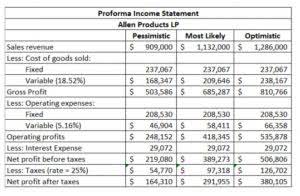Mastering Full Charge Bookkeeping: A Comprehensive Guide for Beginner, Intermediate & Advanced Bookkeepers
A full-charge bookkeeper is a one-person accounting department, handling the complete financial cycle from A to Z. The preparation and filing of tax returns demand meticulous attention to detail. Bookkeepers must compile comprehensive financial records to ensure that all income, deductions, and credits are accurately reported. Errors in tax filings can lead to audits or penalties, making precision paramount. Many bookkeepers utilize tax software like TurboTax or H&R Block to streamline this process, ensuring that calculations are accurate and deadlines are met. These tools often include features that help identify potential deductions or tax credits, providing financial benefits to the organization.
Financial Controller
This role goes beyond standard bookkeeping, embracing a wider berth of responsibilities and trust. In addition to these core responsibilities, full charge bookkeepers often supervise junior accounting staff, such as accounts payable or payroll clerks. They provide training, assign tasks, and review the work of these what is a full charge bookkeeper team members to ensure accuracy and efficiency.
About Our Data
- Determine the background and level of expertise required to address your needs.
- Monthly fees can range from as low as $100 to $500 or more, depending on the level of service and customization required.
- Because of their big job, full-charge bookkeepers need to know a lot about accounting software and principles.
- The full-charge bookkeeper is often regarded as the financial backbone of an organization.
- Their role may be more wide-ranging in smaller companies and supervisory in bigger organizations.
A full charge bookkeeper’s pay rate can also go higher for hourly freelance work versus guaranteed weekly or monthly salaries. A freelance full charge bookkeeper can quote a fee that follows the industry standards, flexible, of course, based on the scope of the work. A full charge bookkeeper is solely in charge of all accounting done within a small or medium-sized business. To help you determine if hiring a full charge bookkeeper is in your business’s best interest, you need to know what this role entails and how it is different from other bookkeeping work. We take pride in its high-quality service, ensuring clients can focus on other important aspects of business. This dedication to quality and customer service sets Books and Balances apart in bookkeeping.
Full Charge Bookkeeper Qualifications and Skills
Not every company will find the full-charge bookkeeping role suitable for their needs. The Financial Soul Inc, specializes in comprehensive back-office solutions, encompassing bookkeeping, CFO services and tax & regulatory advisory. Contracting with a traditional bookkeeping firm typically involves monthly fees based on the scope of services required.
Salary Prospects
- This includes managing everything from day-to-day financial transactions to preparing detailed financial statements and overseeing tax preparations.
- While not a requirement, a bachelor’s degree in accounting or finance can provide additional knowledge and skills that can be beneficial in this role.
- “We do, what a full fledged accounting department does, at a fraction of the cost!
- In-house bookkeepers are usually internal employees within an organization’s accounting team, while full charge bookkeepers fall under accounting and bookkeeping outsourcing services.
- As the term ‘full charge’ implies, a full charge bookkeeper takes on various tasks.
- Additionally, these bookkeepers may be required to collaborate with accountants at times.
Proficiency in accounting software is a must-have technical skill for full charge bookkeepers. They should be well-versed in tools like QuickBooks, Xero, or Sage, which allow them to perform tasks more efficiently and accurately. Attention to detail is paramount, as even a small oversight can lead to significant financial discrepancies. First of all, bookkeeping doesn’t require obtaining a college diploma, unlike accounting.
One of the primary obligations of a full-charge bookkeeper is to supply accurate and timely financial statements and reviews. Those include the balance sheet, income statement, and cash flow statement. Full-charge bookkeepers generate those reports and examine the financial data to offer valuable insights into the organization’s financial health. These insights aid business owners and stakeholders make informed decisions and strategic cash flow choices. However, in this role, they have to take the responsibility of managing the complete cycle of accounting duties on behalf of the company. To become a Full-Charge Bookkeeper, one needs the right education, certifications, and practical experience.
- Deciding between an in-house bookkeeper and outsourced services depends on several factors.
- Unrealistic expectations and working with owners who may not understand financial projections are other commonly-heard job negatives.
- So the position of a full charge bookkeeper doesn’t cover all the duties of an accountant.
- This includes maintaining the business ledger, preparing financial statements and tax returns, recording complex transactions, and processing timesheets and payroll.
- Larger businesses with more complex financial needs may incur higher costs.
- This guide from our professional bookkeeping services team is here to help you.
This includes recording financial transactions, reconciling accounts, and preparing financial statements. Although full charge bookkeepers combine accounting and bookkeeping services for SMEs, they do differ from accountants in some ways. The main difference is that full charge bookkeepers are not expected to work with audit and tax reports or act as financial advisors. For such matters, they would still seek external assistance from experts in SME real estate cash flow and consumer goods accounting services such as controllers or certified public accountants.




